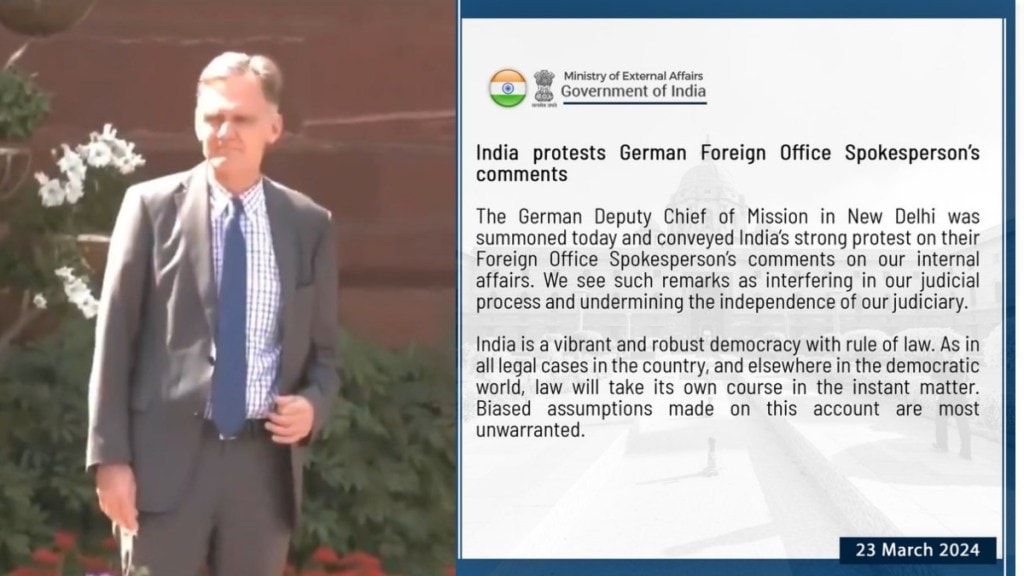India has strongly objected to Germany’s comments regarding the arrest of Arvind Kejriwal, the Chief Minister of Delhi and has termed it as `blatant interference’.
On Saturday the Ministry of External Affairs summoned the Deputy Head of Mission, Georg Enzweiler, “and conveyed India’s strong protest.” Kejriwal was arrested by the central probe agency on Thursday.
In a statement, Germany’s foreign affairs spokesperson had hoped that the “standards relating to the independence of the judiciary and basic democratic principles” would be applied in Kejriwal’s case.
“…Like anyone facing accusations, Mr. Kejriwal is entitled to a fair and impartial trial, this includes he can make use of all available legal avenues without restrictions. The presumption of innocence is a central element of the rule of law and must apply to him,” the spokesperson said.
What did MEA say?
“The German Deputy Chief of Mission in New Delhi was summoned today and conveyed India’s strong protest on their Foreign Office Spokesperson’s comments on our internal affairs. We see such remarks as interfering in our judicial process and undermining the independence of our judiciary,” External Affairs Ministry’s spokesperson Randhir Jaiswal said in a post on X.
Adding, “India is a vibrant and robust democracy with rule of law. As in all legal cases in the country, and elsewhere in the democratic world, law will take its own course in the instant matter. Biased assumptions made on this account are most unwarranted.”
Delhi Chief Minister Arvind Kejriwal was on Thursday night arrested by the Enforcement Directorate in an excise policy-linked money laundering case. The arrest came hours after the Delhi High Court refused to grant protection to the AAP national convenor from any coercive action by the central probe agency.
The case pertains to alleged corruption and money laundering in formulating and executing the Delhi government’s excise policy for 2021-22, which was later scrapped.

